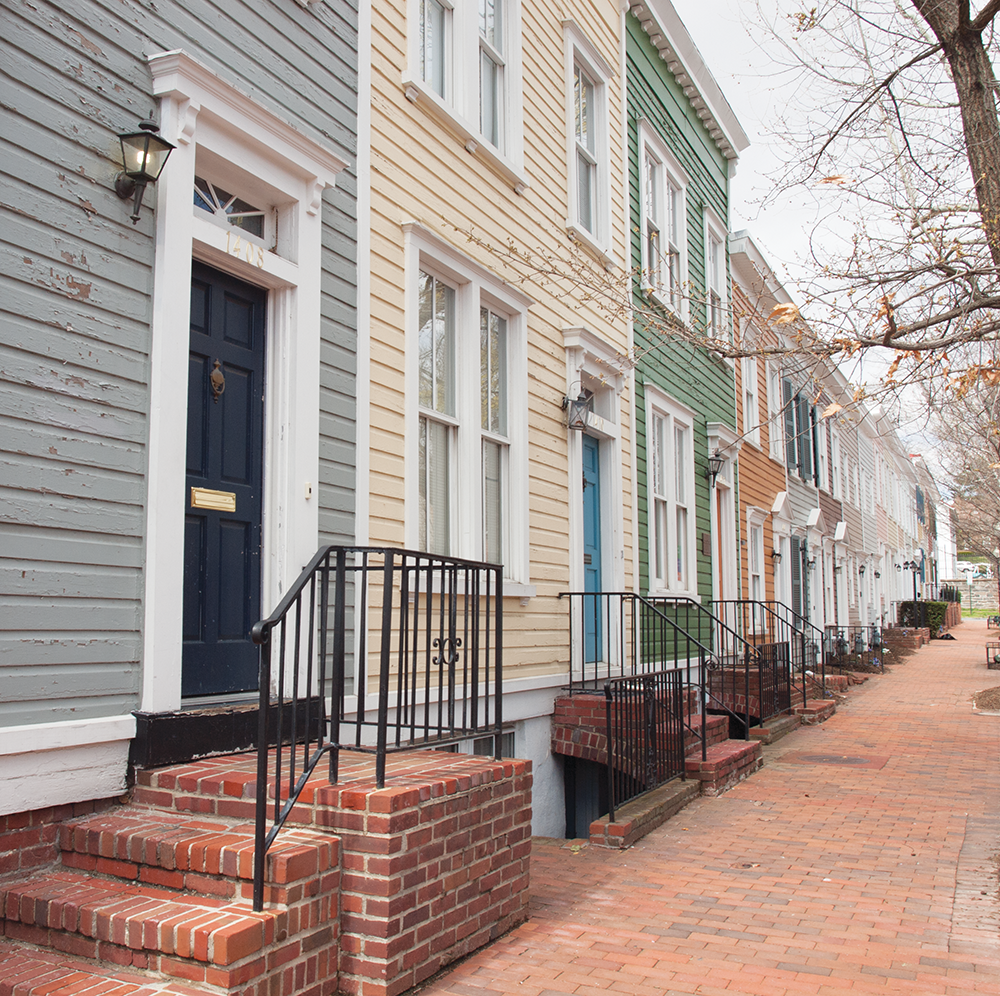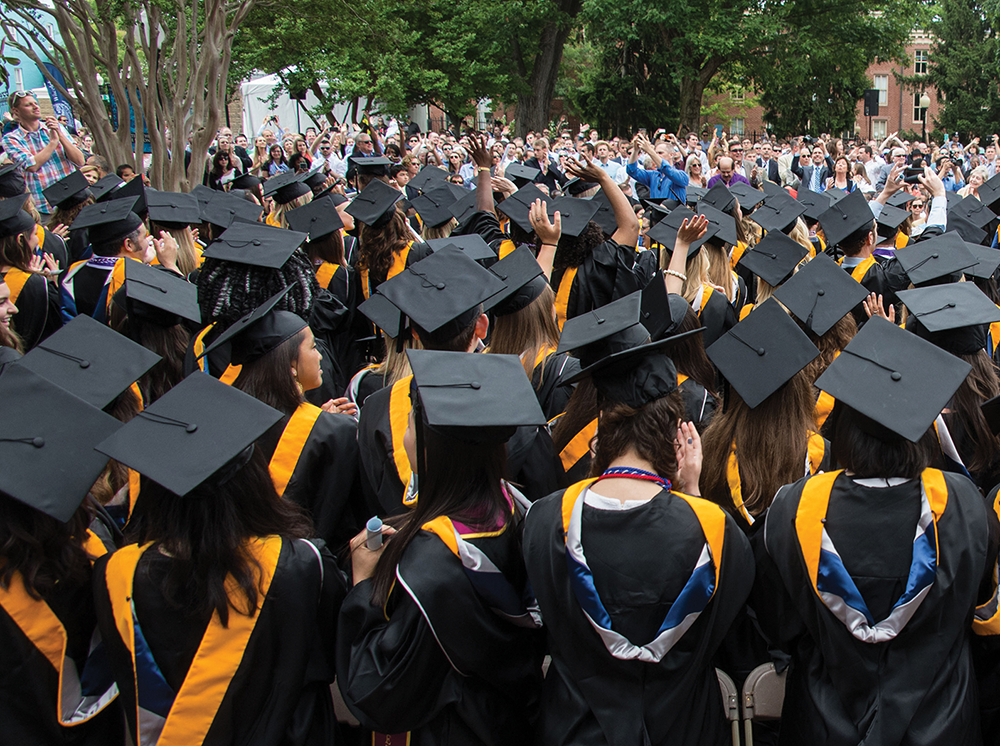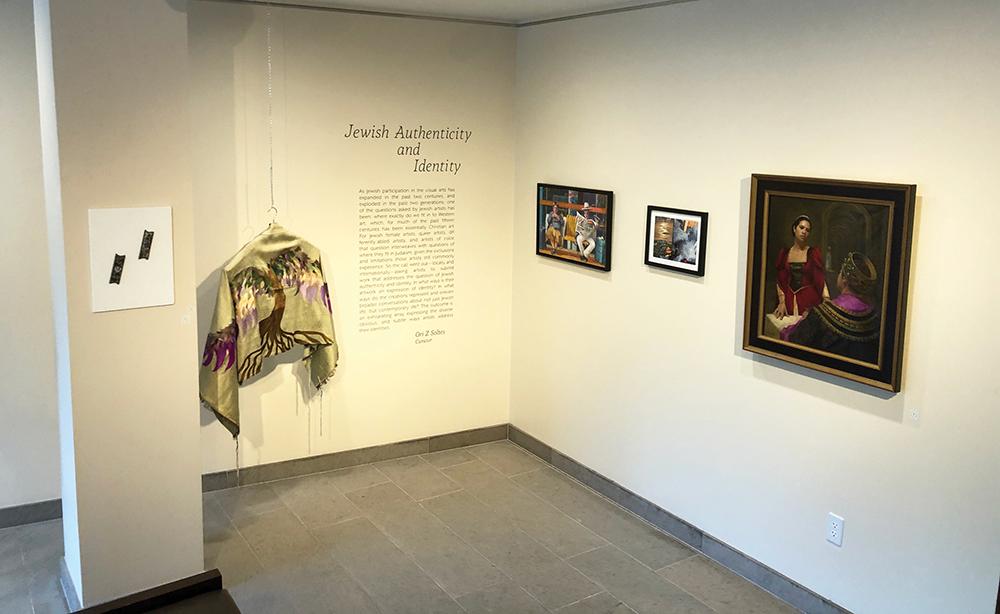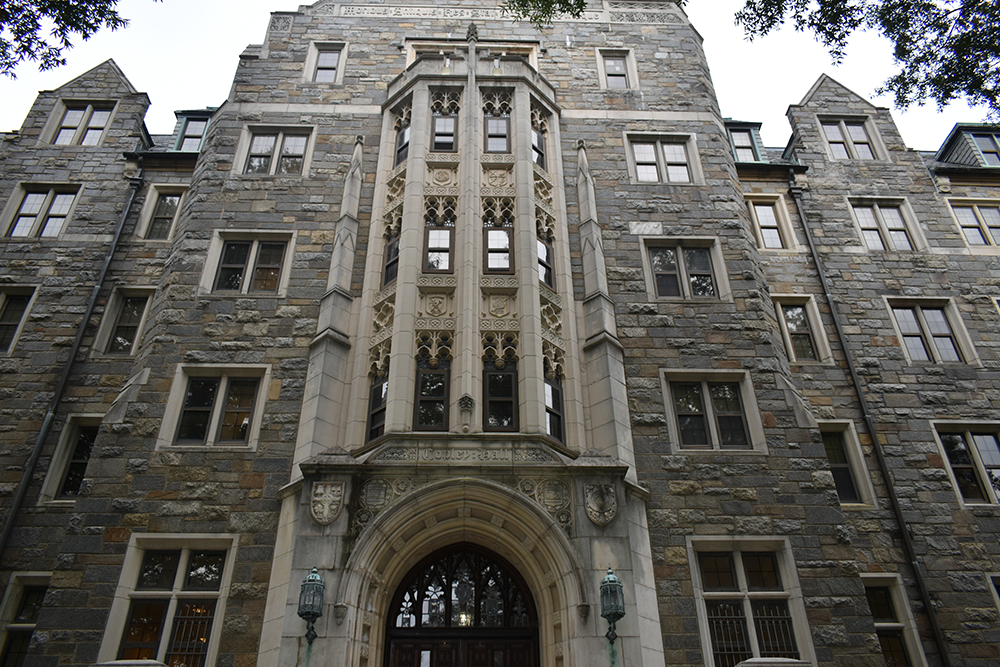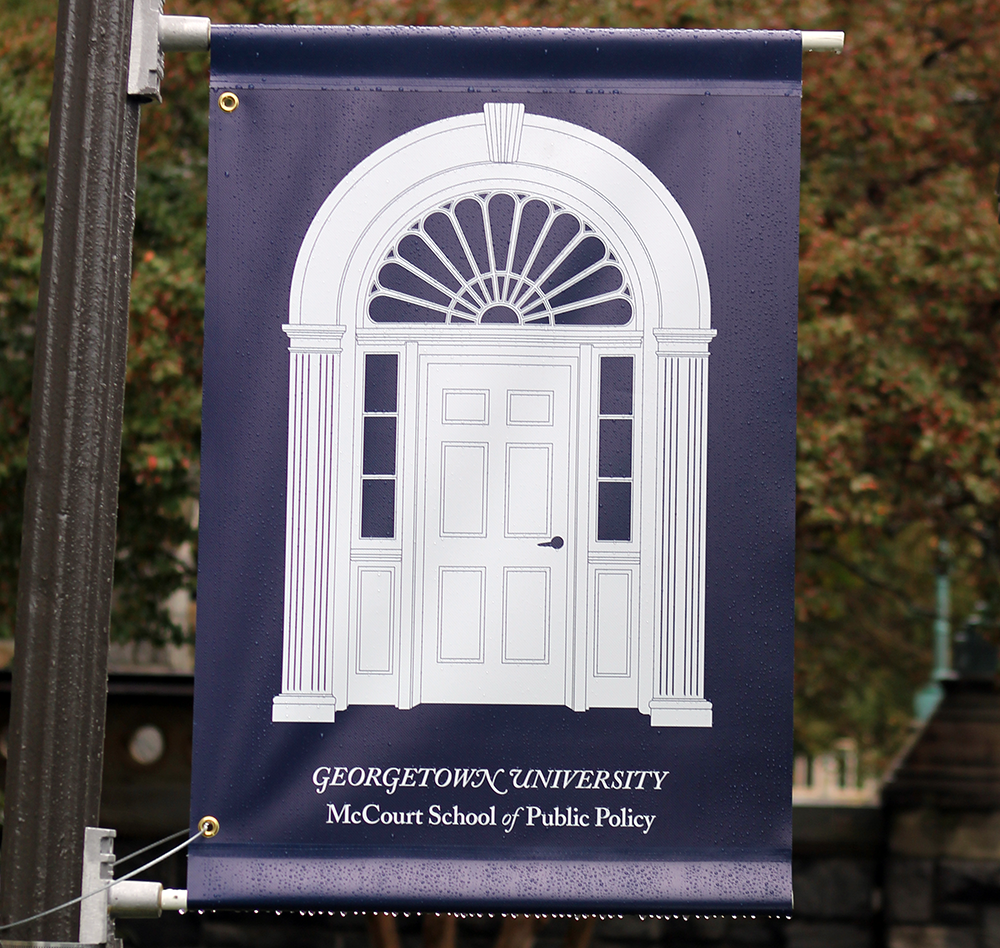COVID-19 infections on campus during the first weeks of the Fall 2024 semester have led to student absences from classes, student event cancellations and confusion about Georgetown University’s COVID-19 policies.
In Washington, D.C., the weekly case rate of COVID-19 increased from 17.55 people per 100,000 residents from Aug. 31 to Sept. 7 to 26.68 people per 100,000 residents from Sept. 7 to Sept. 14. In navigating the local rise of COVID-19 cases, students expressed uncertainty about Georgetown’s isolation policies and frustration with the barriers to accessing tests.
Claire Auslander (SON ’26) said that although her roommate, who contracted COVID-19, was able to isolate with another infected student for a few days, both of them struggled to find useful information from the university on the correct procedures for isolating and symptom monitoring.
“It was the two of us guessing based off CDC protocols — which also keep changing — what her dad was saying because he’s a doctor, and then her symptoms,” Auslander told The Hoya.
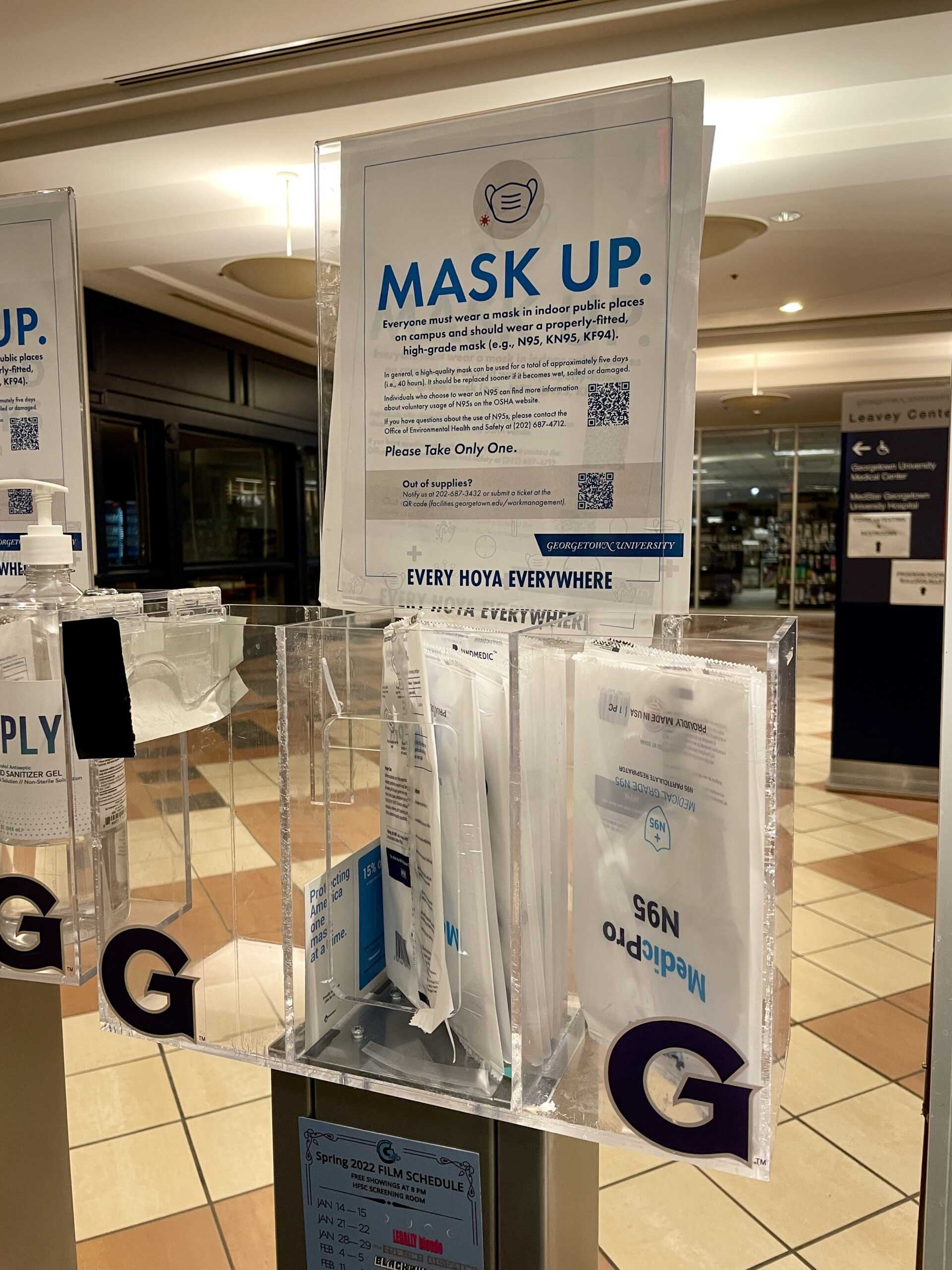
Auslander added that although she took extra precautions — such as washing her hands more frequently and disinfecting surfaces — she was unsure of what to do as someone living with a student who had tested positive for COVID-19.
“Guidance from the university on how to proceed with what happens if a roommate is infected would have been appreciated,” Auslander said.
Michala Koch, assistant vice president for public health at Georgetown, said COVID-19 policies have been updated to reflect the current guidance of the CDC, which no longer recommends a five-day isolation period.
“In line with this guidance, the University ceased requiring isolation and reporting of test results. Community members who have symptoms of COVID-19 or any common respiratory virus should self-monitor and follow the CDC’s recommendations to determine when to resume activities,” Koch wrote to The Hoya.
Raghav Akula (SFS ’27), who also contracted COVID-19, said testing for the virus is more difficult now, with the university directing students to send an email to pick up a test or go to the Student Health Center, rather than recommending students pick up free test kits from on-campus vending machines.
“Sometimes when my friends started getting symptoms, they didn’t know what it was, and they couldn’t test until they went to the Student Health Center. But, you know, if the Student Health Center fills up with appointments then you can’t really test unless you go to CVS and buy your own test,” Akula said.
Dylan Shapiro (CAS ’26), who contracted COVID-19, said that supplementary resources, like food and temporary housing, would make isolation easier for infected students.
“It used to be that if you had COVID and were isolating, you could tell the university and they would bring you food, and I don’t think that that’s the case anymore, so I had to have my friends drop off food for me,” Shapiro said.
From Fall 2021 through Spring 2023, the university provided students who tested positive for COVID-19 with a room in the Georgetown University Hotel, which has now become a residence hall during the redevelopment of the former Henle Village. During their isolation, students received meals, snacks and drinks each day.
Shapiro also said the resources he needed, such as tests and masks, were difficult to access on-campus.
“It was really hard to get COVID tests through the university,” Shapiro said. “I tried to get a test and you had to send an email ahead of time to this specific email address who never got back to me, so I ended up having to borrow one from a friend.”
Koch said the university is providing resources for students to combat COVID-19 and other infectious diseases.
“COVID-19 remains a serious health issue, particularly for people who are at higher risk, and the University continues to provide resources and support,” Koch wrote. “The University stocks masks in stands at the entrances to most campus buildings, provides free antigen testing, and is offering vaccine clinics this fall for the updated COVID-19 and influenza vaccines, among other routine vaccinations.”
Despite dealing with a COVID-19 infection early on in the semester, Akula said it did not sidetrack him from his studies.
“I got really lucky in that my isolation kind of started on Friday afternoon after my classes, and my symptoms were okay enough by Sunday — basically I could break isolation 24 hours after my symptoms were okay — so Monday I was able to break isolation and go to classes,” Akula said.
Nora Toscano contributed to reporting.







